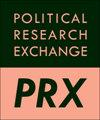The influence of political knowledge on opinion polarization in citizen deliberation
IF 1.8
Q2 POLITICAL SCIENCE
引用次数: 7
Abstract
ABSTRACT Empirical studies show that people with high political knowledge tend to polarize more than others. Polarization refers to a process where one becomes more extreme in the direction of her or his original views. While some evidence supports this view, there is also contrasting evidence, rendering ambiguous conclusions. Discussing in a deliberative setting might alleviate polarization among participants independent of whether they are knowledgeable. We examine the association between knowledge and opinion polarization in a deliberative mini-public setting, focusing on two reasons that may account for the diverging results. First, we distinguish between two types of knowledge: general political knowledge, which concerns knowledge on general political processes and structures, and issue knowledge, which concerns factual knowledge on the specific discussed topic. Second, we examine whether the deliberative context moderates the linkage between knowledge and polarization. We use evidence from two deliberative experiments to examine these linkages. The topic of the first is nuclear power and energy policies and the second concerns immigration. Our results show that general political knowledge and individual level polarization are associated. However, the specific nature of the association is context-dependent and differs between the two types of political knowledge.政治知识对公民议事中意见两极分化的影响
摘要实证研究表明,政治知识含量高的人往往比其他人更倾向于两极分化。两极分化是指一个人朝着自己最初的观点变得更加极端的过程。虽然一些证据支持这一观点,但也有相反的证据,得出了模棱两可的结论。在深思熟虑的环境中进行讨论可能会缓解参与者之间的两极分化,而与他们是否知识渊博无关。我们在一个深思熟虑的小型公共环境中研究了知识和意见两极分化之间的联系,重点关注可能导致分歧结果的两个原因。首先,我们区分两种类型的知识:一般政治知识,涉及一般政治过程和结构的知识;问题知识,涉及具体讨论主题的事实知识。其次,我们考察了审议环境是否调节了知识和两极分化之间的联系。我们使用来自两个深思熟虑的实验的证据来检验这些联系。第一个主题是核能和能源政策,第二个主题是移民。我们的研究结果表明,一般政治知识和个人层面的两极分化是相关的。然而,关联的具体性质取决于上下文,并且在两种类型的政治知识之间有所不同。
本文章由计算机程序翻译,如有差异,请以英文原文为准。
求助全文
约1分钟内获得全文
求助全文

 求助内容:
求助内容: 应助结果提醒方式:
应助结果提醒方式:


